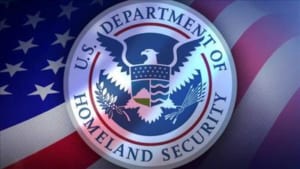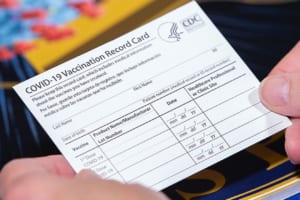At a recent IIUSA EB-5 Forum, Charles Oppenheim, the Chief of the Visa Control and Reporting Division at the U.S. Department of State (“DOS”) – the man who decides the DOS Visa Bulletin every month – responded to a question regarding visa allocation for persons from Hong Kong.
The question was “are EB-5 applicants from Hong Kong now considered in the same category as mainland-born Chinese?” Oppenheim answered that at this time Hong Kong is still treated as a separate foreign state for immigrant visa purposes. This is good news for EB-5 investors and all other persons from Hong Kong who are eligible for immigrant visas because based on average processing times, Hong Kong applicants can expect to obtain their EB-5 visas in 24 to 30 months.
Not so for Chinese EB-5 investors who will continue to be subjected to prolonged waiting periods. The EB-5 visa category has an annual quota of approximately 10,000 visas. Once the annual quota is reached, each country may only take 7% of the visas from the EB-5 visa category. Because of high demand from China for many U.S. immigrant visa categories, Oppenheim estimated that if a Chinese investor files an I-526 Petition (as of November 19th, 2020), he or she may need to wait 17.2 years for the visa to become available.
On June 30, 2020, the People’s Republic of China passed the Law of the People’s Republic of China on Safeguarding National Security in the Hong Kong Special Administrative Region, more commonly known as the Hong Kong National Security Law, as a direct response to ongoing protests in Hong Kong. In response, on July 14, 2020, President Trump signed the Hong Kong Autonomy Act of 2020 (“Act”) and at the same time signed The President’s Executive Order on Hong Kong Normalization. The intent of the Executive Order (“EO”) was to suspend or eliminate different and preferential treatment for Hong Kong, including the treatment of Hong Kong persons as separate from China nationals under the U.S. immigration laws. Later review of the Act and the EO raised questions whether the President’s Act and the EO altered U.S. immigration law in this manner.
Until now, DOS has not issued further guidance on the reallocation of Hong Kong persons to mainland China. Other comments from Department of State officials suggest that this is not forthcoming. With a new presidential administration coming into power in just a few months, it seems unlikely that this proposed change will take effect.
If you have questions about the status of Hong Kong persons and allocation of immigrant visas, contact us at info@enterlinepartners.com and speak with a U.S. immigration attorney based in Ho Chi Minh City, Manila and Taipei. Our immigration attorneys have over three decades of experience assisting clients at the U.S. Consulates thorough Asia.
.
ENTERLINE & PARTNERS CONSULTING
Ho Chi Minh City, Vietnam Office
Suite 601, 6th Floor, Saigon Tower
29 Le Duan Street
Ben Nghe Ward, District 1
Ho Chi Minh City, Vietnam
Tel: +84 933 301 488
Email: info@enterlinepartners.com
Facebook: Enterline & Partners – Dịch vụ Thị thực và Định cư Hoa Kỳ
Website: http://enterlinepartners.com
Manila, Philippines Office
Unit 2507 Cityland 10 Tower 1
156 H.V. Dela Costa Street
Makati City, Philippines 1209
Tel: +632 5310 1491
Email: info@enterlinepartners.com
Facebook: Enterline and Partners Philippines
Website: https://enterlinepartners.com/language/en/welcome/
Copyright 2020. This article is for information purposes only and does not constitute legal advice. This article may be changed with or without notice. The opinions expressed in this article are those of Enterline and Partners only.








